A marketing analyst is one of the key figures within any company.
Marketing analysts not only help businesses utilize market data as a strategic tool to develop new products but they also interpret consumer behavior, refine business ideas, and even assess the viability of entering a new competitive sector. Naturally, the position has amazing potential in terms of career development, as it is high in demand across all industries, including consumer services, tech, and energy.
So, in this article, we'll provide you with the most important information you need to become a marketing analyst.
You’ll learn who the marketing analyst is, what they do, how much they make, and what skills and degree you need to become one.
You can also check out the video on the topic below, download our free infographic, or scroll down to keep on reading.
What Is a Marketing Analyst and Why Are They So Important for Business Success?
Marketing is the fuel that provides power to the motor of a company - sales. Without substantial marketing efforts, organizations will have a hard time selling their products.
There are various roles within marketing and each one fulfills a particular function to keep the business going at full speed. And marketing analysts tend to be some of the most hands-on professionals in a marketing company. Their role is truly versatile, encompassing a wide range of activities:
- digital marketing
- traditional/offline marketing
- brand marketing
- market research
- marketing communications
- retail marketing
- B2B marketing, and so on..
The possibilities are endless.
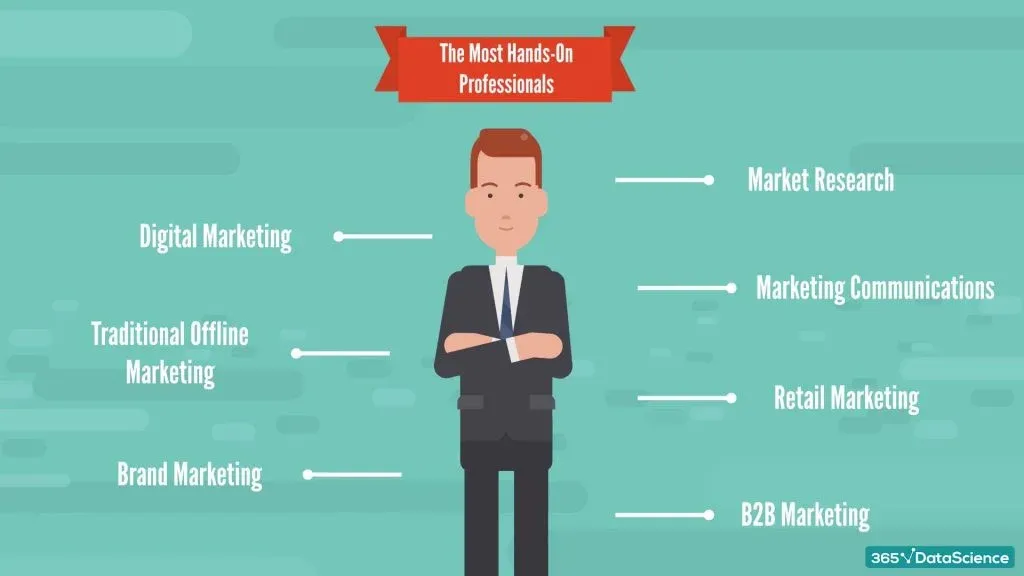
However, we need to remember that a marketer's primary goal, regardless of the channel - be it digital, traditional, or business-to-business, is to introduce a company's products and showcase their value to customers. And in today's data-rich environment, the success of a marketer is measured by their ability to leverage multiple sources of data to make informed decisions based on quantitative evidence.
A marketing analyst works closely with product owners and can be assigned to a particular product or, alternatively, to a specific channel. For example, a digital marketing analyst is usually responsible for a company's social media accounts. They also handle the communication with agencies to discuss ad spend, upcoming campaigns, and the amount of promotional budget that can be allocated. A marketing analyst also collaborates frequently with the sales team and provides them with valuable insight when it comes to forecasting and resources that can be spent at a given time.

That’s the compact presentation of this exciting job role. But to get a better idea of what it means to be a marketing analyst, we need to take a closer look at their typical responsibilities.
What Does a Marketing Analyst Do?
A marketing analyst's list of day-to-day tasks is super versatile and seemingly infinite. Some typical marketing analyst tasks involve providing feedback on copy and images prepared by agencies or in-house talent and making sure that brand guidelines have been followed. They are the ones responsible for running outbound and inbound marketing B2B or B2C campaigns, as well as interacting with agencies reps and communicating results to marketing managers. Quite often, a marketing analyst in a company oversees a single product or channel. This not only gives them a true perspective on how the product or channel works but also reveals the dynamics that allow for more sales and improved brand awareness among the target audience.

If this sounds like something you’d like to do, you’ll probably get even more excited about the job, once you discover that it can be rewarding in terms of income, as well.
What Is the Marketing Analyst Salary?
How much does a marketing analyst make? According to Glassdoor, a marketing analyst makes \$54,155 on average. So, if you’re just starting your marketing analyst career, expect a median entry level marketing analyst salary of \$39k a year. Of course, a senior marketing analyst salary can go up to \$76k!

What Is the Marketing Analyst Career Path?
The marketing analyst job is a great option to explore on its own but also as an entry-level position that could open the door to a marketing manager position. And, if you’re determined enough, you can rise through the ranks and become a Chief Marketing Officer!
When it comes to job availability and demand, the marketing analyst job outlook is undisputedly strong, as companies of all sizes need dedicated marketing professionals.
Usually, in a smaller firm, marketing analysts have more responsibilities. This allows them to gain a holistic view of all activities. In a larger organization, where marketing budgets are generally larger, they tend to specialize in a particular aspect and work on it extensively. Either way, there are plenty of opportunities across all fields, including the consumer, FMCG, and telecom industries.
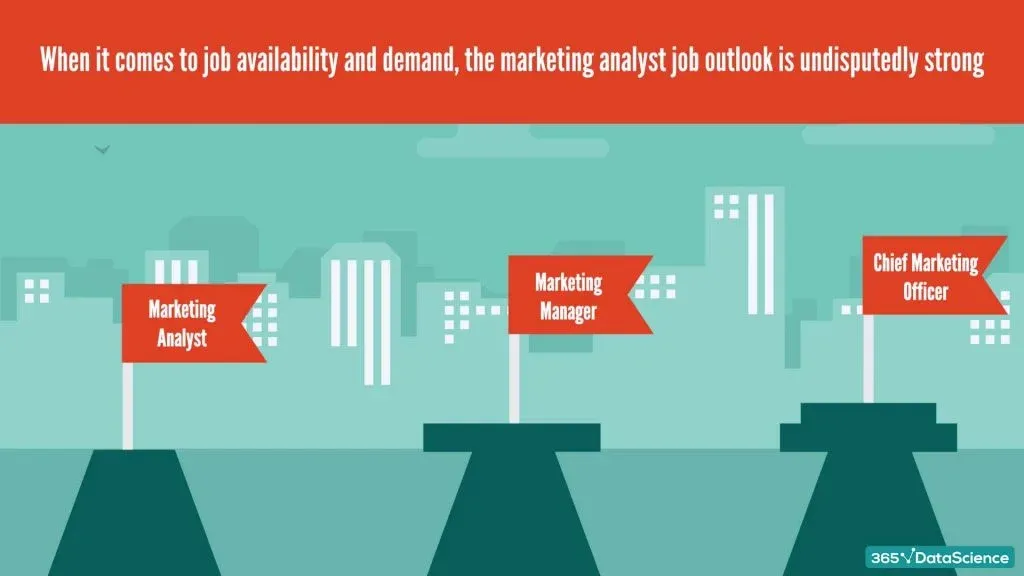
What are the Key Skills You Need to Apply for Marketing Analyst Jobs?
We researched many job ads to discover the most in-demand tools and skills marketing analyst candidates must have.
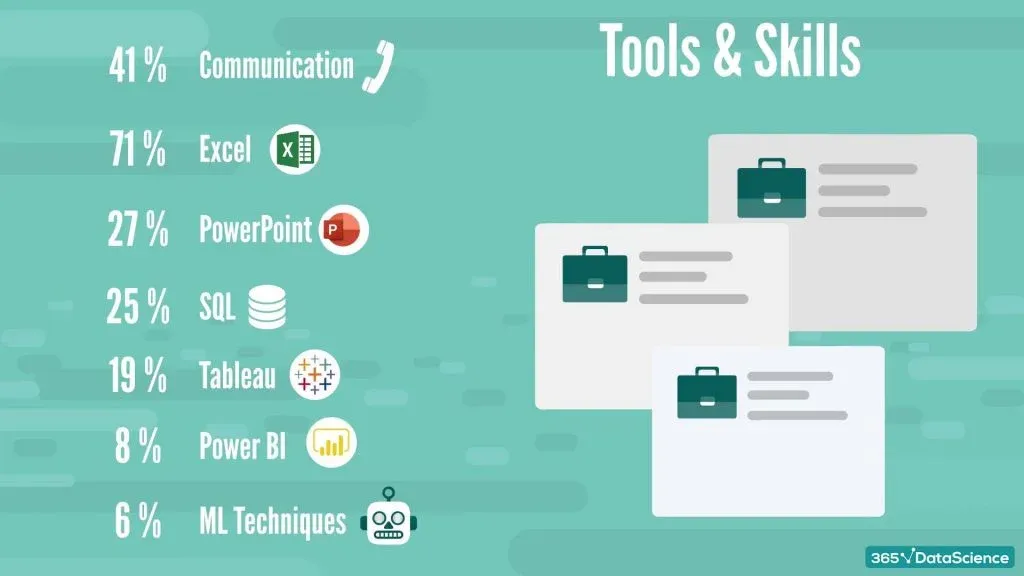
Here’s what the data says:
- 41% of job offers emphasized communication
- 71% mentioned Excel
- 27% required PowerPoint
- 25% cited SQL
- 19% requested Tableau
- 8% - Power BI
- And 6% - Machine Learning techniques
Among the other notable mentions in the marketing analyst skills category are technologies like:
- ERP
- SPSS
- Google Analytics
- Qlik Sense
- Stata
- SAS
Let’s elaborate on this.
The numbers in every marketing analyst job description are very clear on one thing. Every marketing practitioner needs analytics. It's what helps them make sense of the different figures coming from various channels, client types, and product configurations.
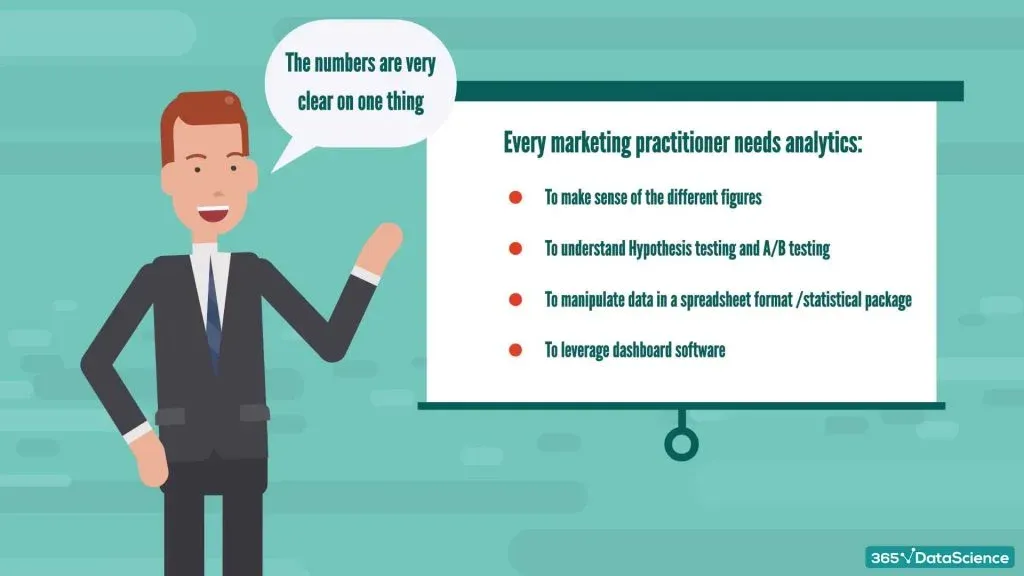
They have to understand Hypothesis testing and A/B testing. Especially if they work online, which nowadays is a must for almost everyone.
Being able to manipulate data in a spreadsheet format or with a statistical package is fundamental for this profession, too.
What’s more, today, marketing professionals also need to leverage Tableau and Power BI. Such dashboard software helps them self-serve their analysis needs and make adjustments in real-time.
But analyzing quantitative input is far from the only requirement of the job. Marketing analysts should exude both proactivity and passion for the brand. Besides, as the research clearly points out, they must be excellent communicators, as well.
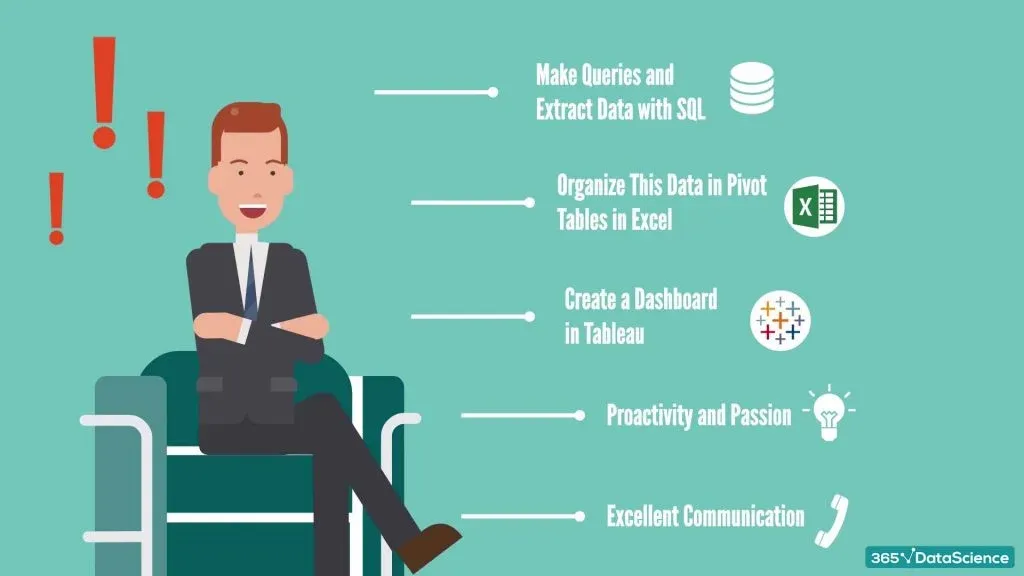
What Is the Required Marketing Analyst Degree?
In terms of academic degree, a Bachelor’s degree was quoted in 66% of the job offers, while a Master’s – in a mere 6%. And the good news for those of you who hold undergraduate degrees and lack professional experience doesn’t stop here.
What Is the Necessary Marketing Analyst Experience?
When it comes to years on the job, the average expectation of employers is 3.6 years. However, a whole 39% of jobs didn’t require any experience at all! So, that certainly gives you a good chance to land a marketing analyst job straight after college graduation.

Now you know the most important aspects of the marketing analyst position, what to expect from the job, and what skills to acquire to become one.
However, if you are looking to start a marketing analyst career but you feel that you need to level up your skillset, check out our Customer Analytics in Python course. It will guide you all the way from the marketing fundamentals, through customer and purchase analytics, to building a deep-learning model to predict customer behavior, all implemented in Python.






